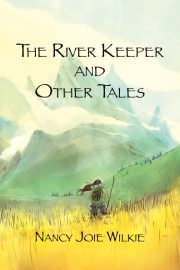The Benefits of Copyright Registration
by Ken Liu
 Writers are sometimes confused by the “registration” requirement under the US copyright laws. In this post, I hope to clear up the concept and help you decide whether copyright registration makes sense for you.
Writers are sometimes confused by the “registration” requirement under the US copyright laws. In this post, I hope to clear up the concept and help you decide whether copyright registration makes sense for you.
As usual, note that although I am a lawyer, the following is offered for education and information purposes and does not constitute legal advice. Always consult with a copyright lawyer for your individual circumstances.
Do I have to register to get copyright protection?
You do not. There was a time when registration made a difference in whether a work was protected by US copyright, but current law is explicit that “registration is not a condition of copyright protection.” 17 USC §408(a). Copyright attaches as soon as “original works of authorship” are “fixed in any tangible medium of expression.” 17 USC §102(a). In other words, your words are copyrighted as soon as you write them down, whether they’re in a notebook, a Microsoft Word file, a blog post, a forum posting, or even a Facebook comment. Registration has nothing to do with it.
Then what’s the point of registration?
Registration gets you a bunch of additional protections. Here’s a brief list of some of the main benefits:
- You must register your copyright before you can sue someone in court for infringement. 17 USC §411(a).
- You must register your copyright before the end of 3 months after the date of first publication (or, in the case of unpublished works, before the end of the first month after initially learning that your work was infringed) to get the benefit of statutory damages and attorney’s fees (more on this below). 17 USC §412. Note that you do not have to publish to register the copyright (this can be unintuitive for authors who associate copyright in some way with publication).
- Registration made before the end of five years after the date of first publication will constitute prima facie evidence in court that a copyright is valid and that all the facts stated in the certificate of registration are true. 17 USC §410. This means that it becomes the defendant’s burden to show that your copyright is invalid or that you’re not the owner, a potentially powerful shift in the relative powers of the parties.
- Registration provides notice to everyone that you own the copyright, making it harder for infringers to argue that they infringed “innocently.”
- Registration may make it easier to transfer your copyright, and in some industries (such as film scripts), registration of copyright is a prerequisite to get some people (like agents) to take you seriously.
When do I have to register?
You can register a copyright anytime within its lifetime (currently, life of the author plus 70 years). However, as described above, you can obtain certain benefits only by timely registration.
Tell me more about “statutory damages.”
Normally, when someone infringes your copyright, you’re entitled only to “actual damages” and “profits of the infringer that are attributable to the infringement” 17 USC §504(b). This can be a burden that makes pursuing a legal remedy not worthwhile: How do you prove the profits that some random web site made from publishing your story without permission? And how do you prove what sales you might have lost because of the web site’s unauthorized publication of your story? Since the US operates under the “American Rule” where each party pays their own lawyers, you might not even be able to afford to pay a lawyer to stop the infringing activity.
But with timely registration, you get the option of electing statutory damages instead. 17 USC §504(c). This can be between $750 to $30,000 per work (and up to $150,000 per work if the infringement was willful). Plus, you may get attorney’s fees and costs at the court’s discretion, making it more likely that you can retain a lawyer on a contingency fee basis. 17 USC §505. With these benefits, it may well make sense to pursue cases that otherwise you would not.
A dramatic illustration of the power of statutory damages is provided by the case of Sony BMG Music Entertainment, et al. v. Tenenbaum, in which the jury awarded the plaintiffs total statutory damages of $675,000 because the defendant offered 30 songs with registered copyrights for download on a file-sharing network. Sony BMG Music Entertainment, et al. v. Tenenbaum, 721 F. Supp. 2d 85 (D. Mass. 2010). The damages were calculated at $22,500 per song because the infringement was willful (and that’s on the low end of the maximum $150,000 per song).
Putting aside how one feels about this specific result, it’s clear that statutory damages give the plaintiff who timely registers a lot of power.
How do I register?
To register a copyright, you apply to the Copyright Office. Currently, the Copyright Office allows you to register online through a fairly simple process: complete an application form, pay a fee ($35 per work), and attach a copy of the work you’re registering. If you choose to register by mail, the fee is $65 per work.
In a few months, you get back a nice certificate of your copyright, suitable for framing. The effective date for your registration is the day the Copyright Office receives your completed application.
For more details, see the “Registering a Work” FAQ at the Copyright Office (http://www.copyright.gov/help/faq/faq-register.html).
That’s still pretty expensive. Can I save money by registering multiple works at once?
You can indeed register multiple works in one application as a “collection” as long as you’re the author of all of them and you own the copyright in all of them.
However, this doesn’t work for published works unless they were all published together (among other requirements). Thus, if you’re an author who writes individual stories on spec and submits to various markets (this describes most short story writers), you’ll probably have to register the stories one at a time unless you register them in a bundle before you publish (something most writers don’t bother to do).
Are there any downsides to registration?
Besides the (relatively low) cost, the biggest potential downside is that registration information is public, which means that after registration, you’ll likely get a lot of unwanted emails and letters from vanity presses, fake agents, and other assorted businesses that prey on authors. But if you’re a working writer, you’re likely getting these already.
Give me a summary.
Copyright registration is cheap, simple, and when done on time, gives you much more palatable legal options when you find others infringing your work. I suggest authors think of copyright registration as a low-cost insurance in their work that can result in significant benefits.
•••
Ken Liu is an author and translator of speculative fiction, as well as a lawyer and programmer. His fiction has appeared in The Magazine of Fantasy & Science Fiction, Asimov’s, Analog, Clarkesworld, Lightspeed, and Strange Horizons, among other places. He has won a Nebula, a Hugo, a World Fantasy Award, and a Science Fiction & Fantasy Translation Award, and been nominated for the Sturgeon and the Locus Awards. He lives with his family near Boston, Massachusetts.


